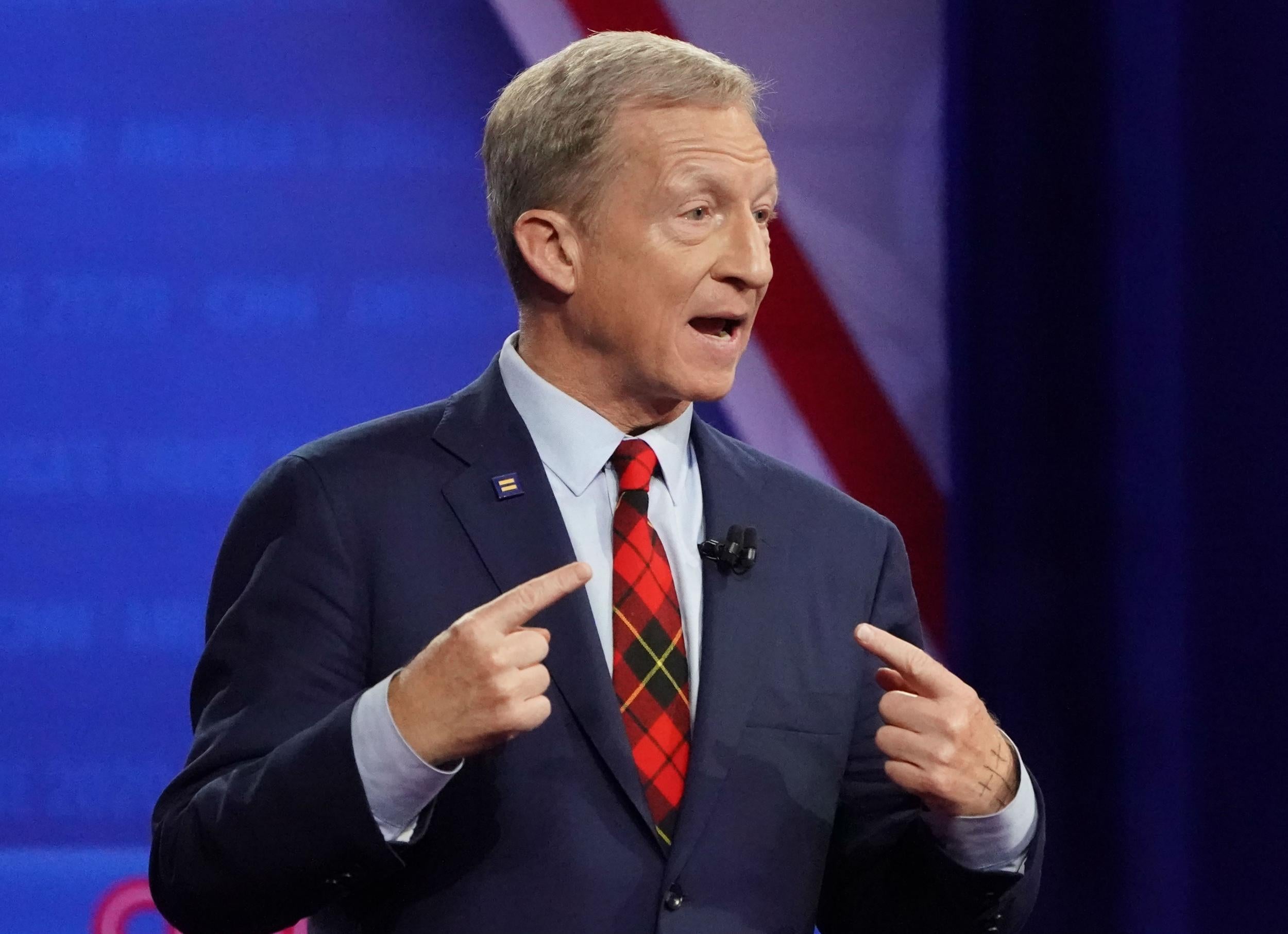Tom Steyer’s presence on the debate stage makes a mockery of US democracy
A 2010 Supreme Court ruling opened floodgates to big money


For as long as anyone can remember, progressives have loved to complain about the pernicious influence of the billionaire Koch brothers. There’s only one brother, Charles, still active in politics now, after David died this summer.
Over their lives, the brothers and their network have spent hundreds of millions of dollars backing interests such as the fossil fuel industry, and trying to keep government out of areas such as healthcare. In the 2016 cycle, they spent an estimated $1bn – the same as the Republican and Democratic parties each did.
But it’s not just on the right where big money buys a seat at the table.
Among the 12 Democrats taking part in the party’s fifth debate was Tom Steyer, the 62-year-old hedge funder said to be worth $1.6bn.
Steyer has spent around $30m of his own money to boost his name recognition. By contrast, his campaign raised just $2m in the year’s third quarter – a paltry sum compared to Bernie Sanders’s $25m, and less than half the $4.8m collected by long shot Amy Klobuchar.
The spending was enough to get Steyer through the Democratic National Committee’s qualification rules – a score of at least two per cent in two recognised polls, and 130,000 unique donors from 20 states. Essentially, he bought his way onto the stage.
This has not escaped the notice of his rivals. “His ability to spend millions of his personal wealth has helped him gain in the polls like no one else,” senator Cory Booker said in an email to supporters.
Most Americans will tell you they don’t think big money should have such a place in politics, and for a long time, members of both parties worked to regulate it. The Bipartisan Campaign Reform Act of 2002 sought to drive so-called “soft money” out of campaigns; it also included the so-called ”stand by your ad provision”, which is why official campaign ads contain the words “I’m [insert name of candidate here] and I support this advert”.
Yet the guts of the bill were ripped out in 2010 by the Supreme Court, which found that the free speech clause of the first amendment prohibits the government from regulating how much money can be spent on politics.
Since then, the taps have been open on both sides, though most of the Democratic candidates have declared they will not take corporate money. At the same time, another billionaire, Michael Bloomberg, has said he is reconsidering his decision not to run.
Everyone who watched Tuesday night’s debate will have their own views on Steyer’s merits as a candidate. What’s not a matter of opinion is whether the way he got to the stage was fair. It was not.
Yours,
Andrew Buncombe
Chief US correspondent
Join our commenting forum
Join thought-provoking conversations, follow other Independent readers and see their replies
Comments